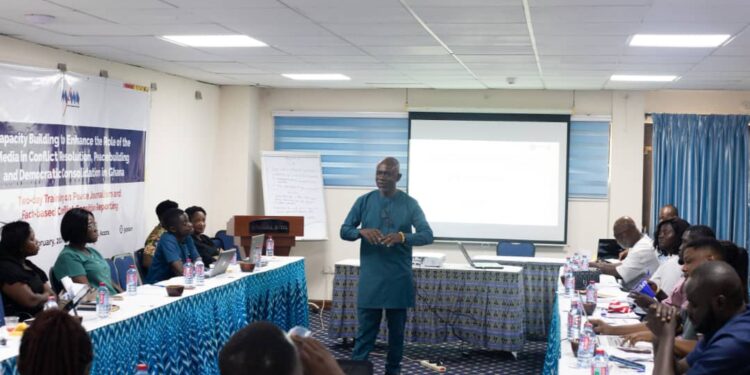For a positive shift within the media landscape in Ghana, Journalists are being advised to embrace professionalism through peace journalism and fact-based conflict-sensitive reporting.
The Executive Secretary of the National Peace Council, Mr. George Amoh, notes that this shift within the media landscape has become fundamentally important as the country’s threats have been loudly established.
Despite Ghana being mostly peaceful, conflicts over land, ethnic tensions, unemployment, crime, election issues, violence, farmer-herder clashes due to climate change, and external threats like extremism and illegal activities are potential factors that could disrupt peace in Ghana.
To this end, Mr. Amoh is encouraging journalists across the country to advance the course of peace, harmony and peaceful coexistence before, during and after the 2024 General Elections.
“I think that the next election is not only going to test the resilience of Ghana’s democracy but also the character of our democracy. Can our democracy stand the test of being swindled here and there? … This therefore calls for a kind of a media profession that will help the country navigate through the difficulties so that we can all sail through to next year without any difficulties for our democracy” he emphasized.
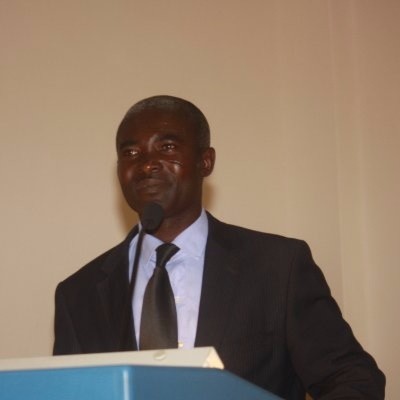
Mr. George Amoh was addressing 26 selected journalists at a two-day Capacity Building to Enhance the Role of the Media in Conflict Resolution, Peacebuilding and Democratic Consolidation in Ghana in Accra.
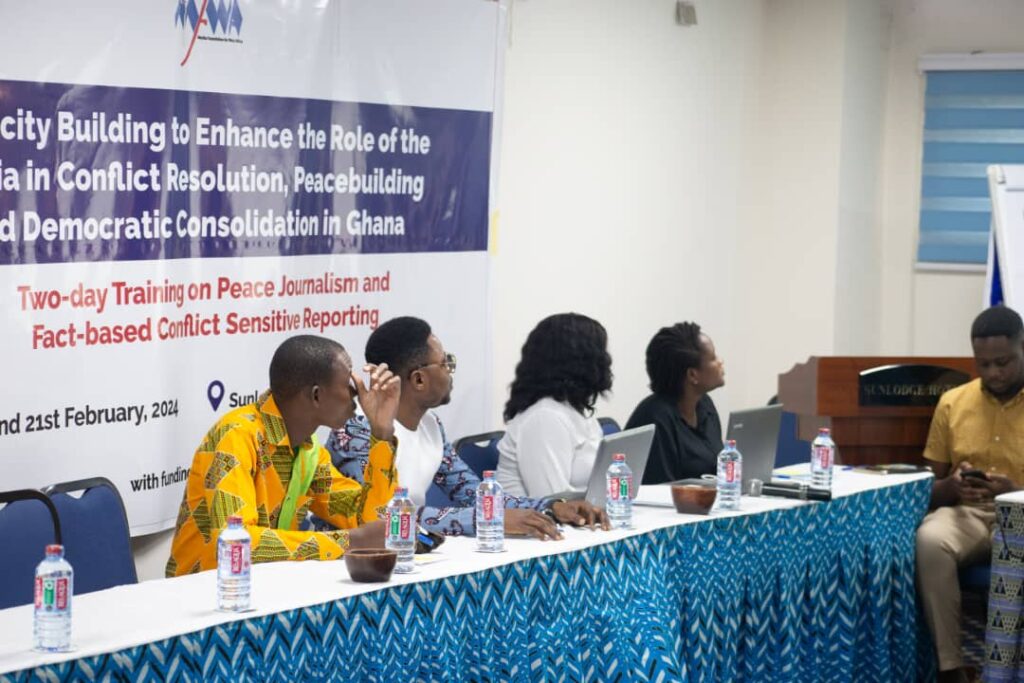
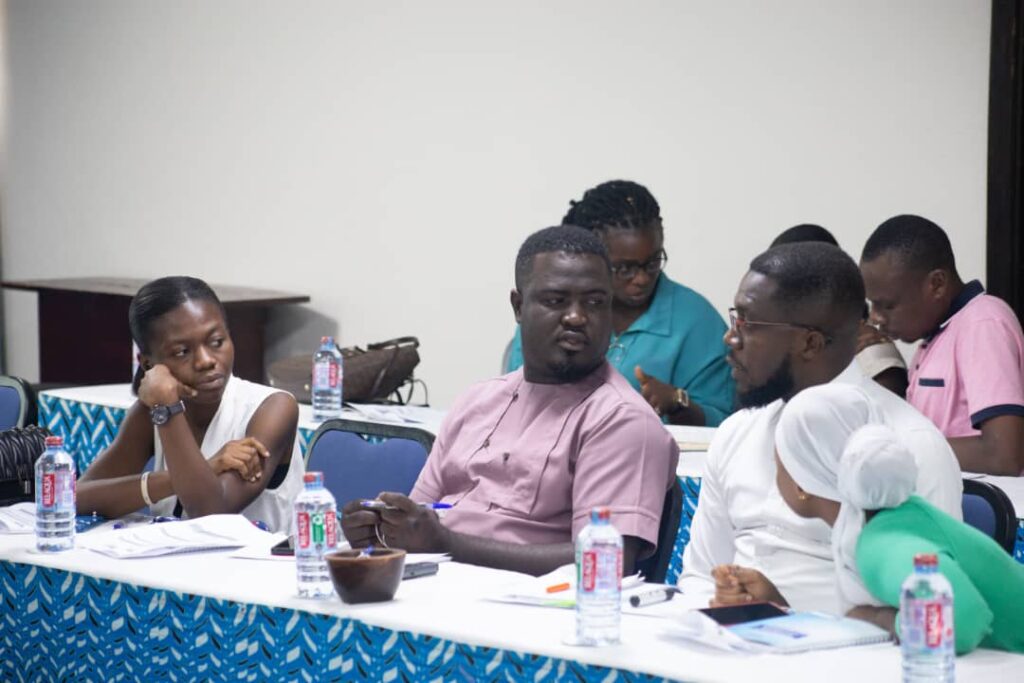
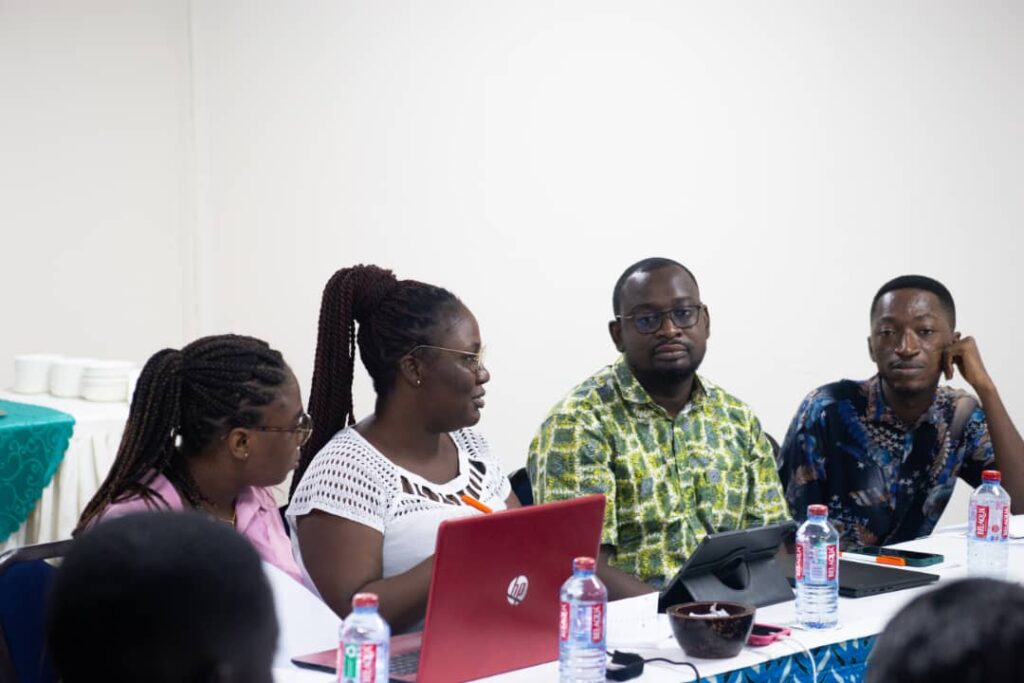
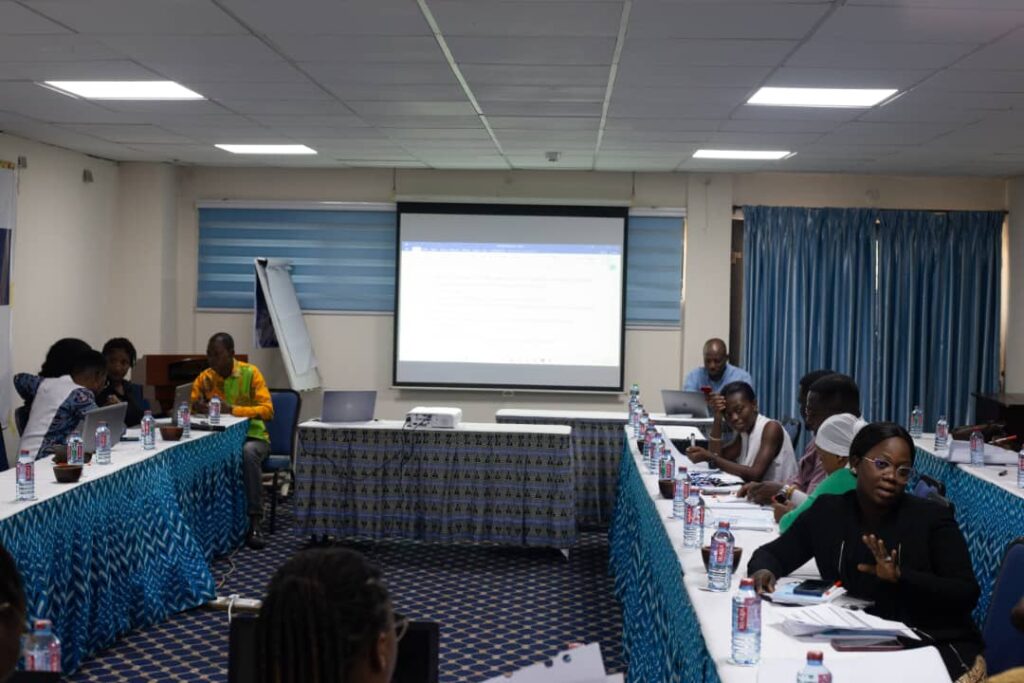
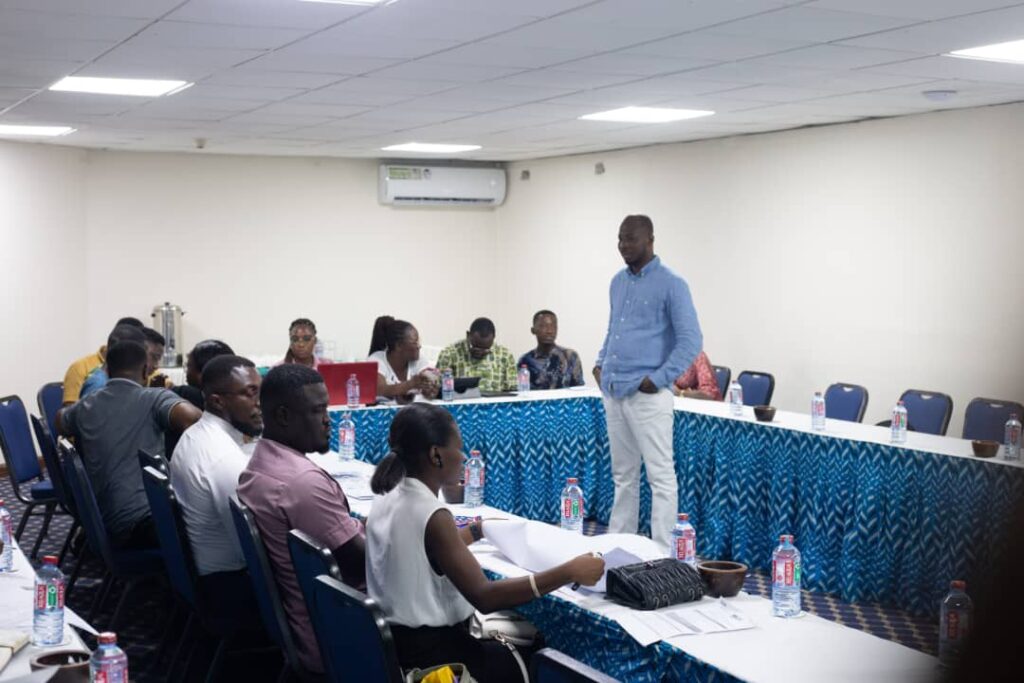
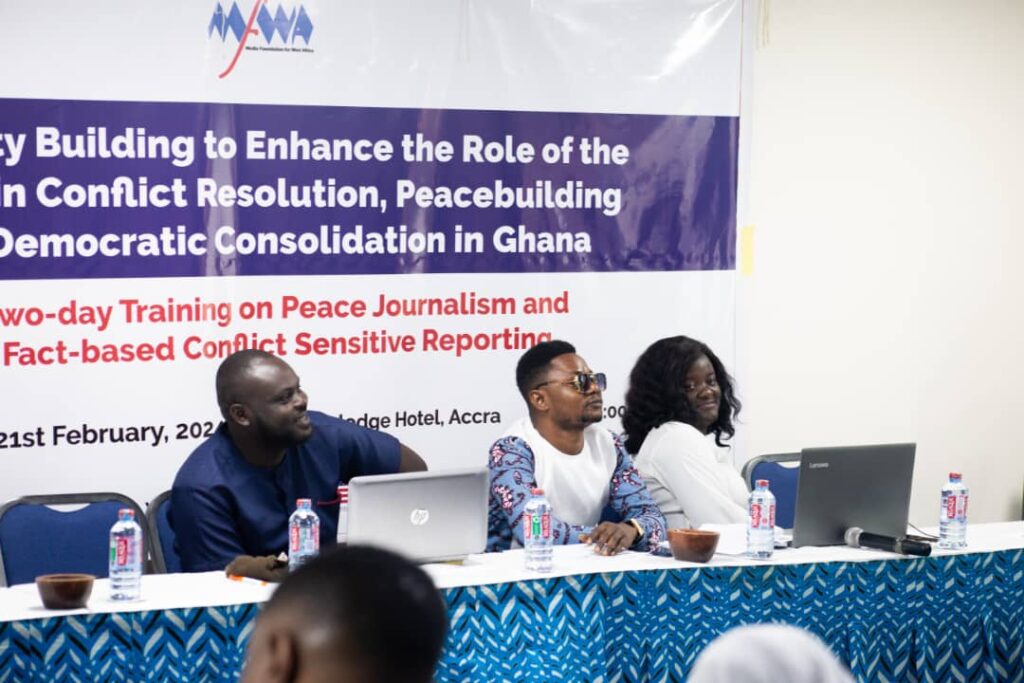
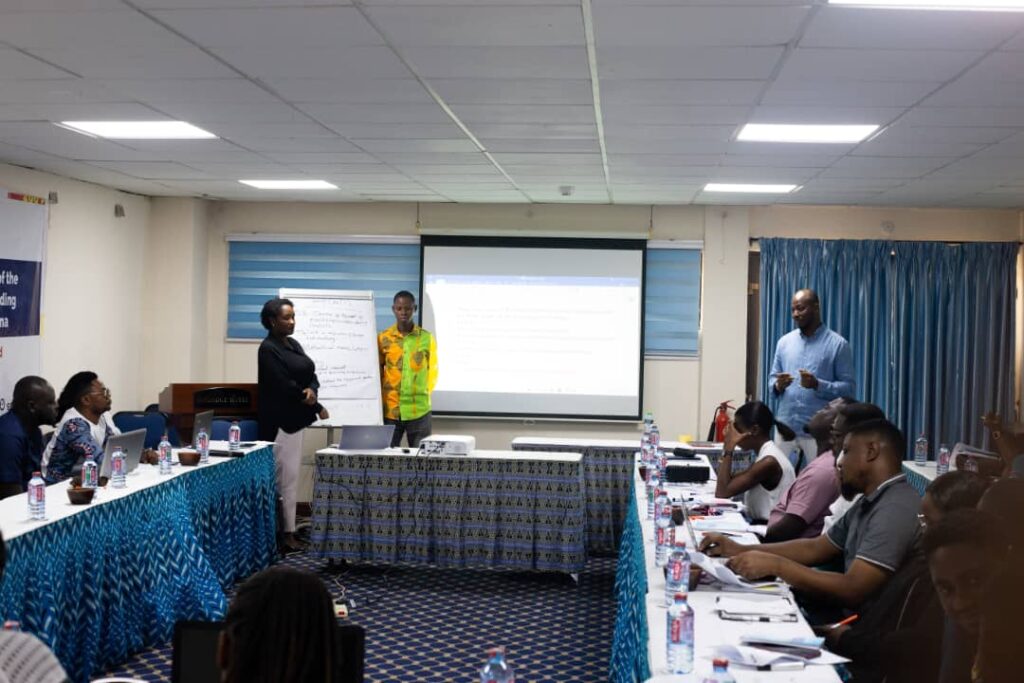
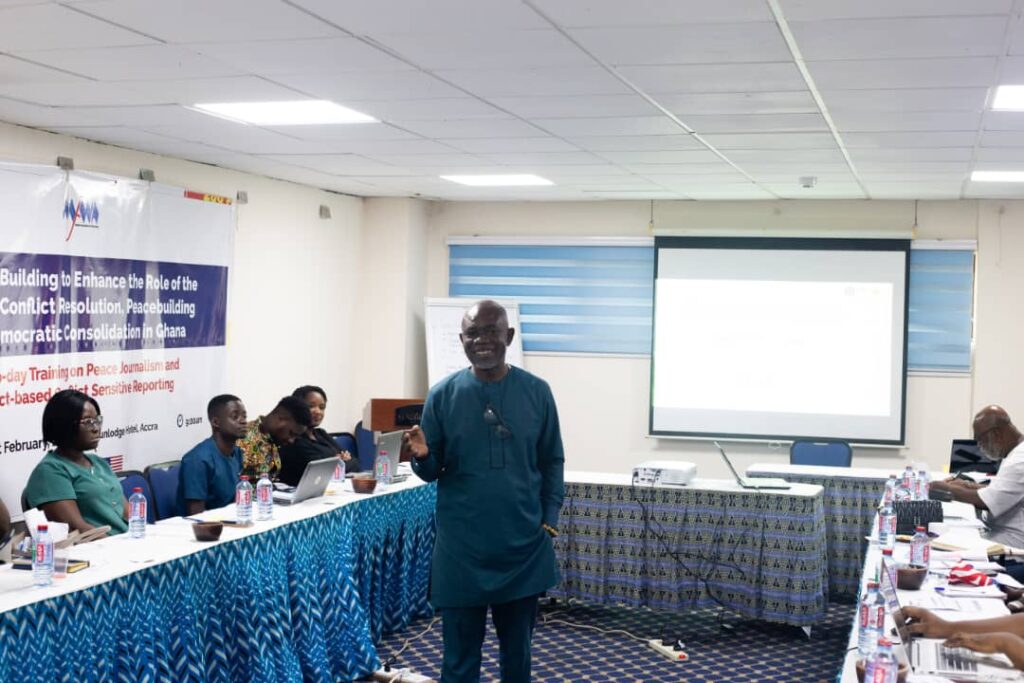
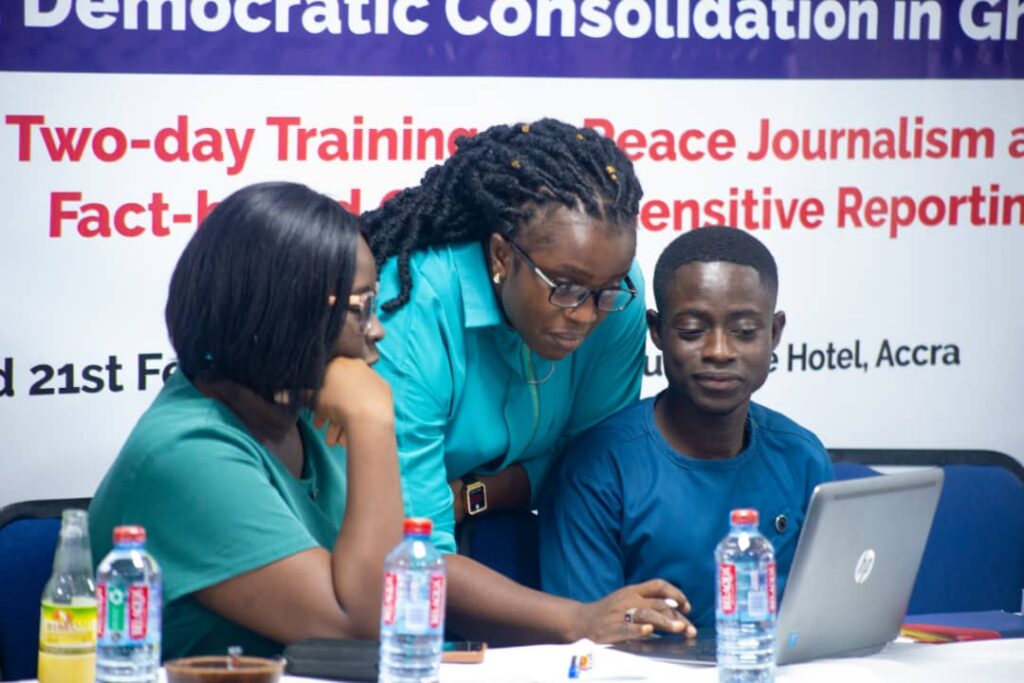
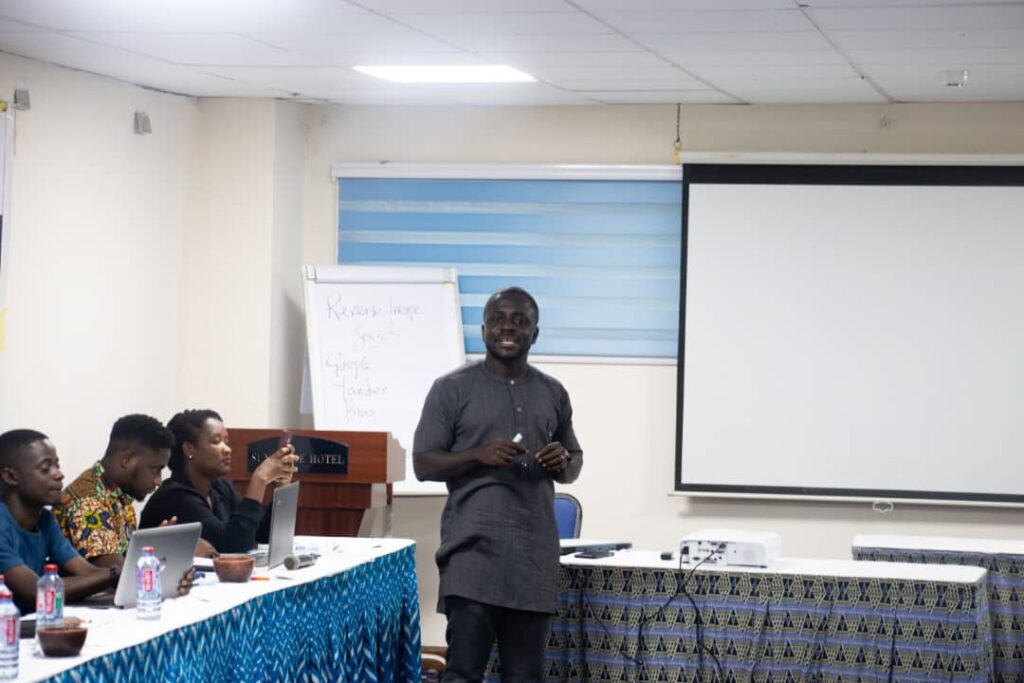
To him, journalists should exhibit integrity, values, ethics and accountability while also embracing high professional standards in their daily affairs as journalists.
The two-day Capacity Building Training Programme organized by the Media Foundation for West Africa (MFWA) and funded by the US Embassy in Ghana aims to train journalists and media organizations to spread messages of peace, reduce conflicts, and fight against mis/disinformation and mal-information.
Rolf Olson, Charge D’Affaires of the US Embassy Ghana emphasizes that as many analysts saw an uptick in disinformation before the recent coups within the Western African Region, journalists in Ghana have the mandate to be a rational, evidence-based voice by providing accurate information.
He mentioned that the US Embassy is making such an investment as they understand that journalists, just like public servants, security forces, community leaders, and civil society organizations, have a role to play in peacebuilding.
“In an environment with increasing disinformation, you can be the reasoned, fact-based voice. You have the power to help communities better understand local conflict and perhaps empower those communities to de-escalate and resolve conflict themselves. You can empower local voices who preach peace, calm, and reconciliation over violence and vengeance.”
In addition, Rolf Olson indicated that the US Embassy is actively involved in engaging communities in the North to foster peacebuilding and resolve conflicts adding that they facilitate community dialogues that involve the youth, giving them a platform to express their frustrations and discuss issues on limited economic opportunities. ‘
“We are also helping build capacity among the security forces to engage in dialogues with at-risk communities. Soon, we’ll also be rolling out a training program for young people across Ghana, Cote d’Ivoire, Guinea, Togo, and Benin, so that more young developing leaders can support peacebuilding in their communities.
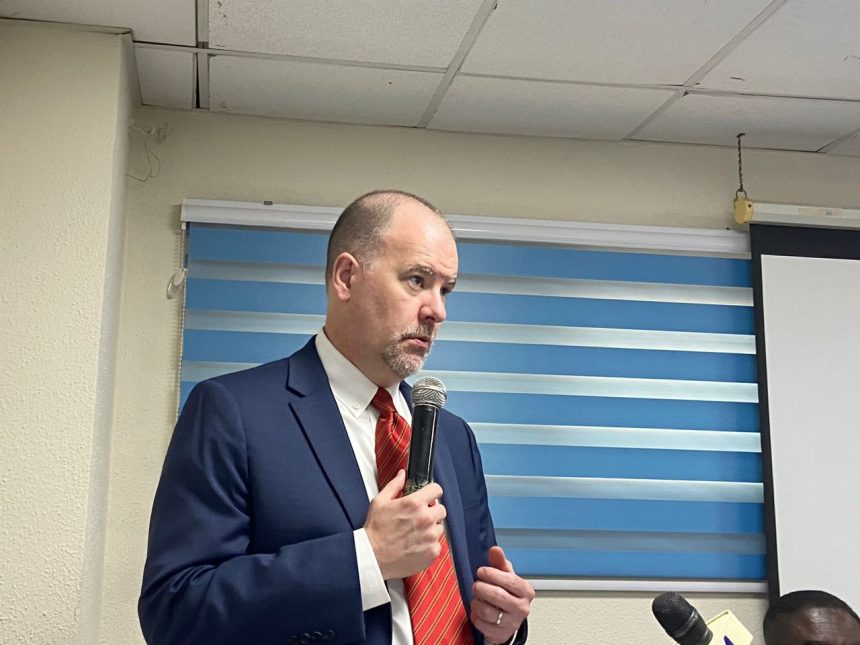
Our priority is to support Ghanaians, Ghanaian institutions, and civil society to increase capacity for peacebuilding and conflict resolution while building resiliency among vulnerable communities.”
The capacity-building training programme which began on Tuesday, February 20 included selected Journalists from ATLFM in Cape Coast, JoyNews, Modern Ghana, Ghanaian Times, Radio Ada, and Bryte FM in Koforidua among others.
Dr. Kojo Impraim, Programme Director, Media for Peace and Sustainable Development at MFWA indicated that the training project will span 12 months.
Through these training sessions, 100 journalists from regions including Northern, Savannah, Bono East, Upper East, Upper West, and Greater Accra will be equipped to counter misinformation and propaganda effectively.
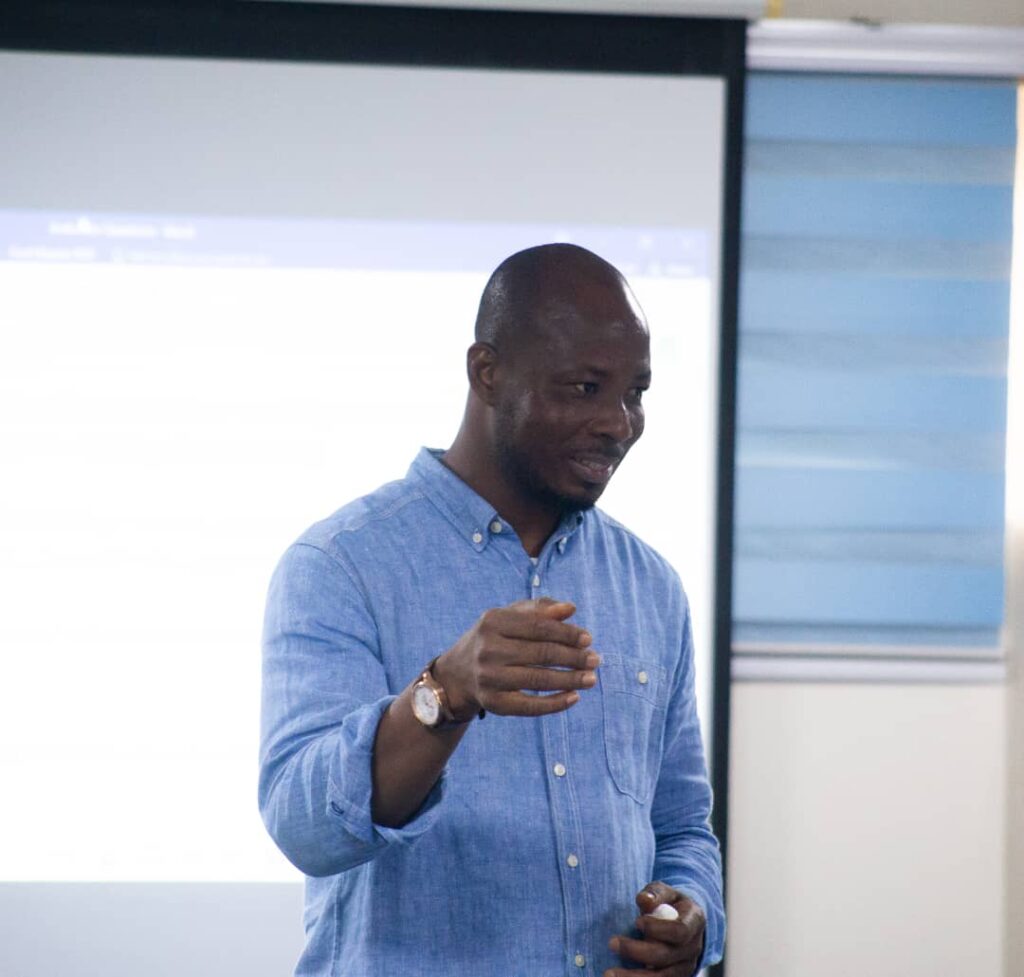
Dr. Impraim expressed that the trained journalists and their respective media organisations will have enhanced capacity to use their platforms to promote peace messaging and fact-based media content that help to de-escalate communal, violent extremism and electoral conflicts.
Source: Aba Aikins/ATLFMNEWS
Read also: ATLFM’s LOVE GIFT BOX: Winning Couple Share Compelling Story















